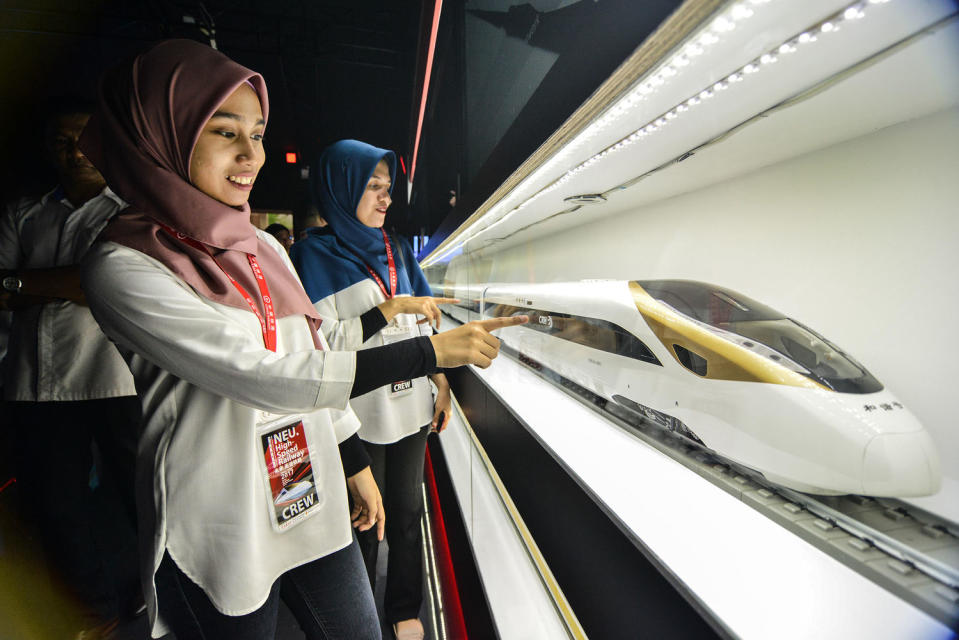Malaysia attempts revival of KL-Singapore high speed rail project with request for proposals

Malaysia’s MyHSR Corp is requesting for the private sector to submit proposals to develop and operate the HSR in an RFI exercise.
In an apparent revival of the Kuala Lumpur-Singapore high speed rail (KL-SG HSR) project, Malaysia’s MyHSR Corporation has announced that it is embarking on a full-fledged Request for Information (RFI) exercise to enable the private sector to officially submit concept proposals to develop and operate the project through a public-private partnership model.
According to MyHSR Corp, which is wholly-owned by Malaysia’s Minister of Finance and under the supervision of the Ministry of Transport of Malaysia, the RFI exercise marks the Malaysian government’s “initiative” to reactivate the KL-SG HSR project. The reactivation of the project will arrive via new funding mechanisms and implementation models in efforts to further improve the rail transport infrastructure and to invigorate Malaysia’s economy, says the company in a press release on July 11.
The 350 km-long KL-SG HSR was first mooted in 2013 before a binding agreement was signed in Dec 2016 with a target to have the line operational by 2026. The project was postponed and eventually scrapped officially in Jan 2021 under a subsequent Malaysian government. Singapore received compensation of more than $102 million for costs incurred.
In March this year, MyHSR Corp engaged with selected private companies during the initial information gathering stage to understand the level of interest, capabilities and resource requirements needed to make the project “sustainable”, and received a “positive response”.
To further assist the Malaysian government in making informed decisions, MyHSR Corp says that the RFI exercise will be opened to local and international companies to submit their concept proposals. “The exercise will allow the Malaysian government to assess the industry’s interest and ability to fully fund the project while evaluating their capabilities in developing this major infrastructure project by looking into areas such as technical specifications, project costing, commercial and business models, as well as consortium and governance framework.”
As such, CEO of MyHSR Corp Mohd Nur Ismal Bin Mohamed Kamal is encouraging companies with the relevant experience to participate in the upcoming exercise, and is looking forward to receiving “strong interest and high-quality proposals” that would serve as an important reference for the Malaysian government’s decision on the best way forward for the project.
“MyHSR Corp remains committed in supporting the Malaysian government to identify the most effective solution to revive the KL-SG HSR project. Globally, developments of HSR have proven to be growth engines, bringing about catalytic development and growth as well as multiplier effects that benefit all walks of life,” says Mohd Nur Ismal.
Meanwhile, Chairman of MyHSR Corp Fauzi Bin Abdul Rahman says: “The KL-SG HSR project will bring tremendous benefits to the people, particularly in enhancing and expanding economic dynamism from the Klang Valley to the Southern Corridor of the peninsula, and eventually to the rest of Malaysia.”
“In addition to providing a new travel option that is safer, faster, more efficient and sustainable, the project will help us to contribute to the agenda of Malaysia Madani, generating long-term growth and sustainability for the people and the nation,” he adds.
See Also:
Click here to stay updated with the Latest Business & Investment News in Singapore
Malaysia to go it alone with HSR project, pay RM300m compensation to Singapore — source
Get in-depth insights from our expert contributors, and dive into financial and economic trends

 Yahoo Finance
Yahoo Finance 